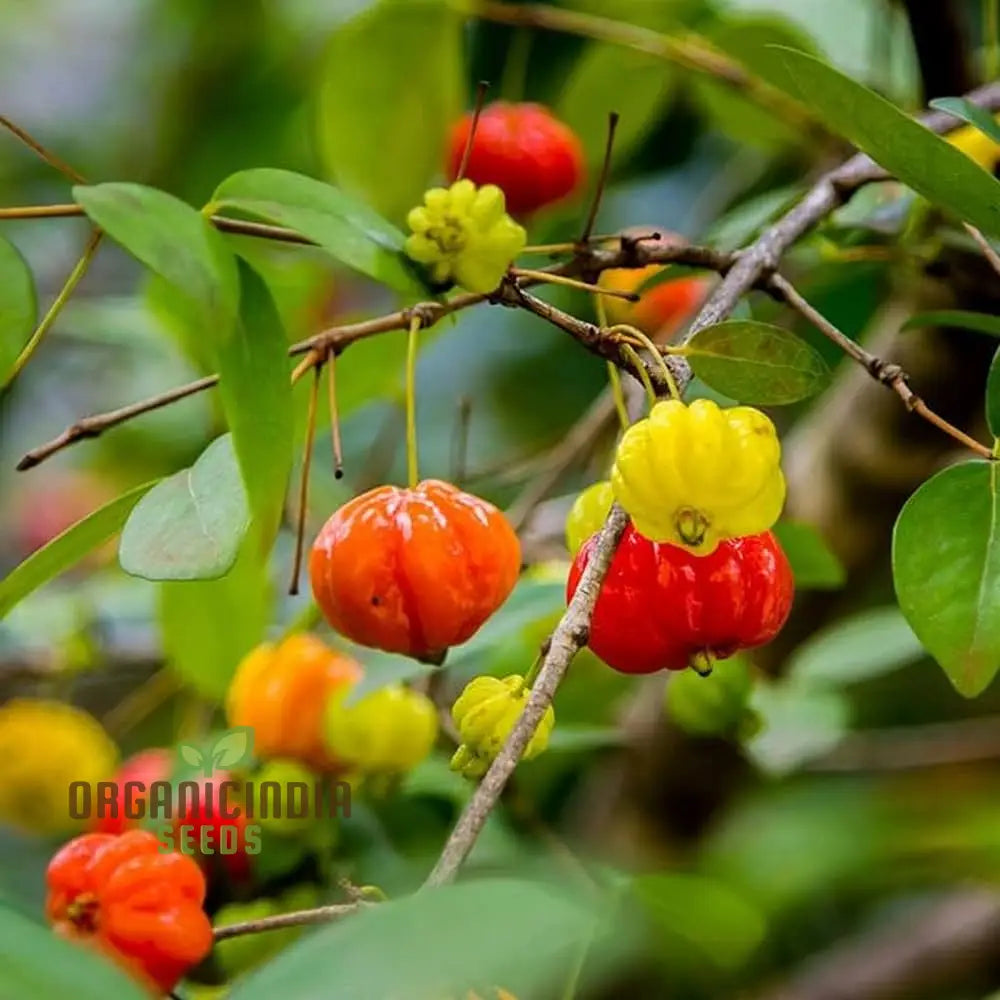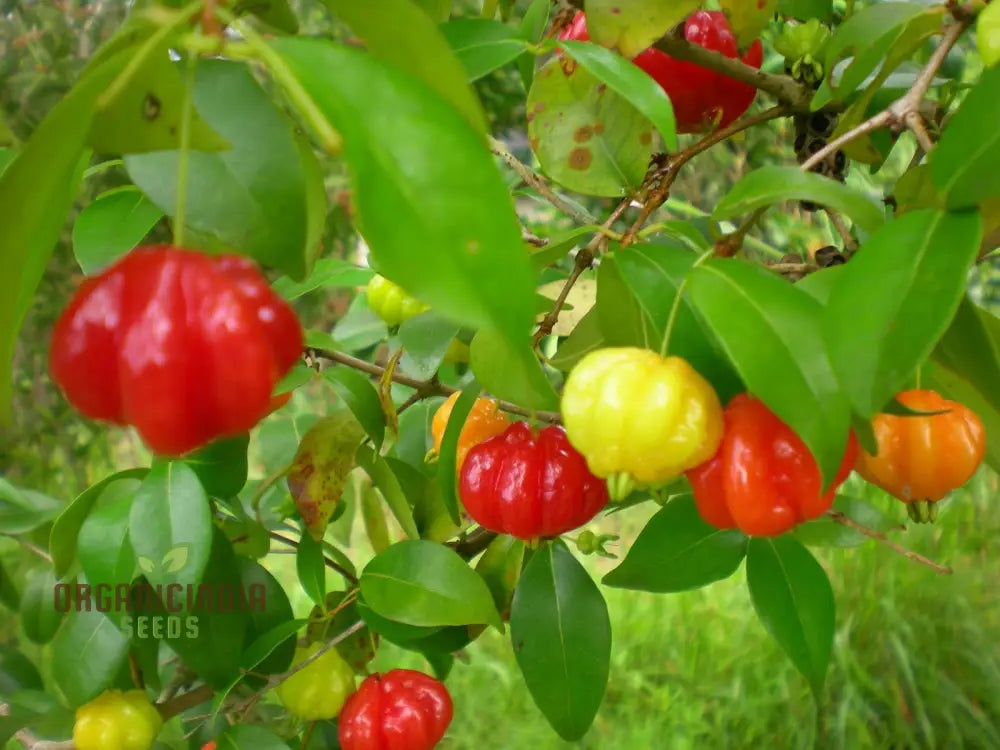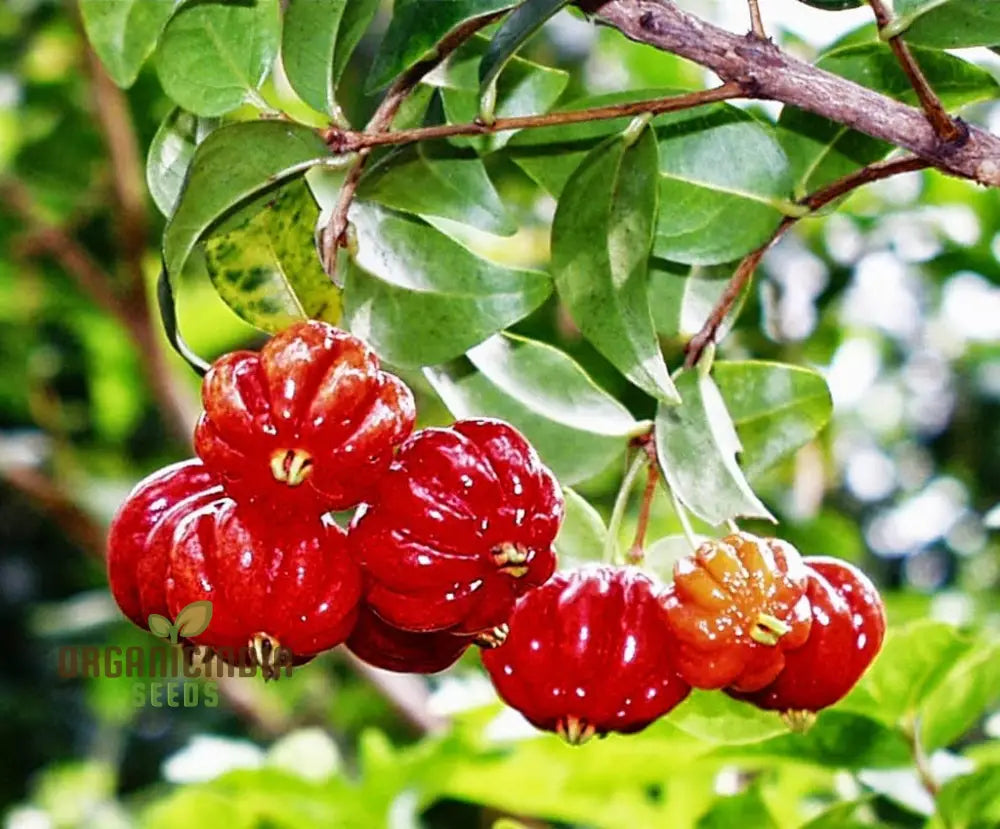





Free Shipping
Safe & Secure Payments
Add a tropical flair to your home garden with Surinam Cherry Seeds (Eugenia uniflora). Known for their vibrant red, ribbed fruits and distinct sweet-tart flavor, Surinam cherries are a tropical delight loved for both their ornamental beauty and nutritional value.
These Non-GMO seeds produce hardy evergreen shrubs that thrive in warm, sunny climates, providing you with abundant fruit harvests and lush green foliage throughout the year. The plant is ideal for hedges, borders, or container gardening.
Rich in vitamin C, antioxidants, and essential nutrients, Surinam cherries can be enjoyed fresh, in jams, or as refreshing juices. Perfect for gardeners seeking a rare and exotic fruit variety.
Produces glossy, bright red or orange fruits with a tangy-sweet flavor
Non-GMO, naturally grown seeds
Excellent ornamental and edible plant for tropical and subtropical regions
Suitable for gardens, patios, or containers
Fruits high in vitamin C and antioxidants
Can be shaped as a hedge or small tree
Common Name: Surinam Cherry, Pitanga, Brazilian Cherry
Scientific Name: Eugenia uniflora
Plant Type: Evergreen fruiting shrub or small tree
Growth Habit: Dense, bushy, compact
Height: 6–15 feet (1.8–4.5 m)
Spread: 6–10 feet (1.8–3 m)
Fruit Characteristics: Ribbed red or orange berries with a tangy-sweet taste
Bloom Time: Spring and summer
Harvest Season: Late spring to early fall
USDA Hardiness Zones: 9–11
Sun Exposure: Full sun to partial shade
Soil Type: Well-drained sandy or loamy soil
Soil pH: 5.5–7.0
Watering: Regular, moderate moisture; drought-tolerant once mature
Temperature Range: Prefers 65–95°F (18–35°C)
Season: Best planted in early spring
Germination Time: 3–6 weeks
Plant Spacing: 8–10 feet apart
Pollination: Self-pollinating
GMO Status: Non-GMO
Organic Status: Naturally grown (non-certified)
Soak seeds in lukewarm water for 24 hours before planting.
Sow seeds ½ inch deep in a well-draining soil mix.
Maintain soil moisture and a temperature of 75–85°F (24–29°C).
Germination typically occurs in 3–6 weeks.
Transplant seedlings outdoors after the last frost, choosing a sunny location.
Water regularly during the growing season.
Prune lightly to maintain shape and encourage fruiting.
حدِّد الخيارات



